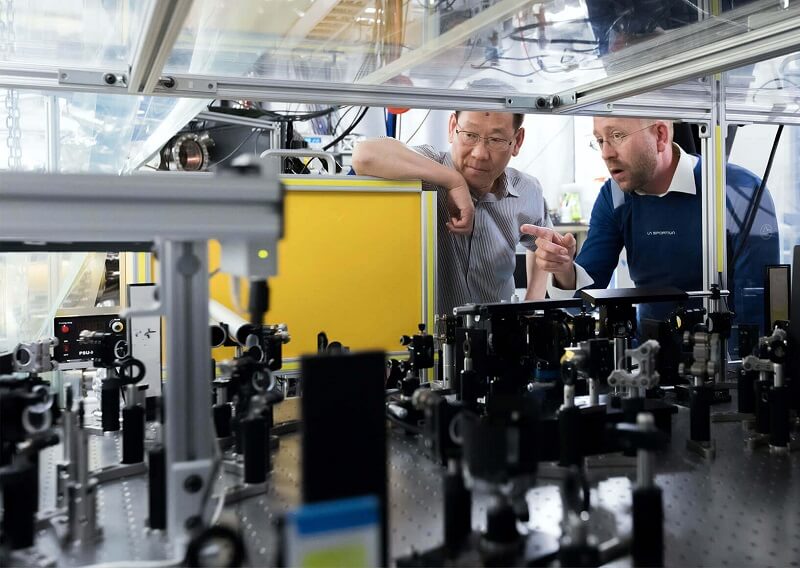In the realm of product design and manufacturing, there exists a crucial yet often overlooked hero: adhesive solutions. These seemingly humble substances play a pivotal role in enhancing the performance and reliability of countless products across industries. From aerospace to automotive, from electronics to healthcare, adhesives quietly but effectively bind components together, providing strength, stability, and longevity. Let’s explore the profound impact of adhesive solutions and understand how they contribute to the success and innovation of modern products.
The Evolution of Adhesive Technology
The history of adhesives dates back thousands of years, with evidence of their use in ancient civilizations such as the Egyptians and Greeks. However, it wasn’t until the 20th century that adhesive technology truly began to flourish, driven by advancements in chemistry, material science, and manufacturing processes.
Early adhesives were often crude mixtures of natural substances such as animal glues, plant resins, and beeswax. While these primitive adhesives served their purpose, they lacked the strength, durability, and versatility required for modern applications.
Today, adhesive technology has evolved to a remarkable degree, offering a vast array of formulations tailored to specific needs and requirements. Synthetic adhesives, such as epoxies, cyanoacrylates, and polyurethanes, dominate the market, providing superior bonding properties across a wide range of materials.
Enhancing Product Performance
One of the primary benefits of adhesive solutions is their ability to enhance product performance. By securely bonding components together, adhesives distribute stress and load more effectively, reducing the likelihood of mechanical failure or fatigue. This is particularly critical in high-stress environments such as aerospace, automotive, and construction, where even minor structural deficiencies can have catastrophic consequences.
Moreover, adhesives offer unique advantages over traditional joining methods such as welding, riveting, or mechanical fastening. Unlike these methods, which can weaken materials, create stress concentrations, or introduce thermal distortion, adhesives provide a uniform bond without altering the properties of the substrate. This not only preserves the integrity of the materials but also allows for the bonding of dissimilar materials, opening up new possibilities for lightweight and multi-material designs.
Enabling Adhesive Innovation
In addition to improving performance, adhesive solutions also drive innovation by enabling the design of more complex and efficient products. The ability to bond materials with different coefficients of thermal expansion, for example, allows engineers to create lightweight structures that can withstand extreme temperatures without warping or delaminating. This is particularly relevant in industries such as aerospace and electronics, where weight reduction and thermal management are critical concerns.
Furthermore, adhesives facilitate the miniaturization of electronic devices by providing reliable and compact bonding solutions. With the trend towards smaller, lighter, and more portable gadgets, adhesives play a vital role in assembling and packaging delicate electronic components, ensuring both functionality and durability.
Improving Reliability
Reliability is paramount in any product, particularly those used in safety-critical applications such as medical devices, automotive systems, and industrial machinery. Adhesive solutions play a key role in improving reliability by providing a consistent and predictable bond strength under a wide range of operating conditions.
Unlike mechanical fasteners, which can loosen over time due to vibration or thermal cycling, adhesives form a strong and durable bond that remains intact throughout the life of the product. This not only reduces the likelihood of premature failure but also minimizes maintenance requirements and downtime, resulting in lower overall costs and improved customer satisfaction.
Environmental Benefits
Beyond their technical advantages, adhesive solutions also offer environmental benefits compared to traditional joining methods. Welding, soldering, and mechanical fastening processes often require significant energy consumption and produce hazardous emissions and waste. In contrast, adhesive material manufacturing typically requires less energy to apply and generate minimal waste, making them a more sustainable choice for manufacturers seeking to reduce their carbon footprint.
Adhesives also enable the use of lightweight materials and modular construction techniques, which can lead to reductions in fuel consumption, emissions, and material usage over the lifetime of the product. This is particularly relevant in industries such as automotive and transportation, where fuel efficiency and environmental impact are of growing concern.
Adhesive solutions play a vital role in enhancing product performance and reliability across a wide range of industries. From aerospace to electronics, from automotive to healthcare, adhesives enable innovation, improve efficiency, and reduce environmental impact. As technology continues to advance, the demand for high-performance adhesive solutions will only continue to grow, driving further innovation and unlocking new possibilities for product design and manufacturing. So, the next time you marvel at a sleek smartphone, board a plane, or undergo a medical procedure, remember the unsung hero behind it all: adhesive solutions.
Get a Custom Solution Created for Your Business
At The Tape Lab, we’re not just creating adhesive solutions; we’re crafting partnerships to bring your custom innovations to life. Check out our personalized solutions or request a quote to get started.
